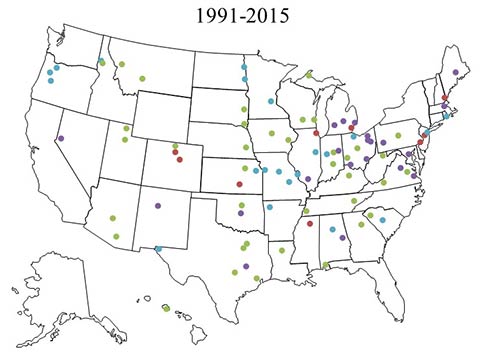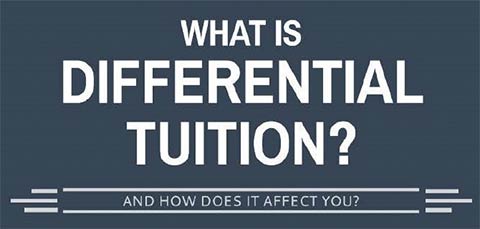After open meetings complaint, Kentucky GOP leadership forging ahead with anti-DEI bill
A complaint has been filed against the Kentucky House Postsecondary Education Committee chair, alleging a violation of open meetings laws during discussions on House Bill 4, which seeks to eliminate diversity, equity, and inclusion (DEI) initiatives in public colleges. Despite the complaint, Republican leadership asserts that the bill’s progress will not be affected. Legal experts argue that conducting legislative business after adjournment could void the amendment process, potentially opening the bill to further scrutiny or legal challenges
Open Meeting Concerns in the Kentucky Legislature: HB4 Incidents
Bensenhaver, Levinson, and Orlick highlight concerns about the way Kentucky House Bill 4 (HB4) is being heard in the legislature with respect to open meetings and transparency. The report details restricted public access, last-minute meeting changes, and potential violations of the Kentucky Open Meetings Act, particularly in discussions on eliminating DEI programs in higher education. It underscores the need for accountability and adherence to open government principles. Bensenhaver is a retired assistant attorney general for Kentucky specializing in open records laws and co-founder of the Kentucky Open Government Coalition.
HB 4 Threatens Diversity, Equity, and Inclusion in Kentucky Higher Education
Kentucky House Bill 4 (HB 4) seeks to eliminate Diversity, Equity, and Inclusion (DEI) offices, ban DEI-related courses and training, and restrict funding for DEI initiatives at public colleges and universities. While certain student support programs remain exempt, the bill threatens programs serving historically marginalized groups, potentially harming student success, faculty recruitment, and campus climate. If passed, HB 4 could negatively impact Kentucky’s higher education institutions by limiting academic freedom, reducing institutional autonomy, and creating barriers to equitable access and opportunity.
Teacher time is precious. Why are lawmakers wasting it by attacking diversity?
March 6 Op-Ed from Jacob Gross in the Louisville Courier-Journal.
Lexington Herald-Leader Op-Ed: Legislative bills on tenure and DEI threaten Kentucky higher education.
NKY Tribune Op-Ed: HB4 threatens Kentucky’s future: Higher education, economy, and innovation at risk
These opinion pieces by professor Melanie Jones Gast, Kristin Sajadi, and James Orlick from the University of Louisville argue that HB 4 and HB 424 will harm Kentucky’s higher education system by restricting DEI initiatives and imposing unnecessary faculty performance reviews, leading to faculty departures, reduced innovation, and financial burdens. The authors warn that these bills will undermine student success, university competitiveness, and Kentucky’s economy by dismantling essential support systems and discouraging top educators and researchers from staying in the state.
Concerns Grow Over Kentucky’s Proposed Intellectual Freedom Survey
An Insight Into Diversity article on the policy brief below.
The Methodological Challenges of an Intellectual Freedom and Viewpoint Diversity Report
Policy Analysis Brief: The Methodological Challenges of an Intellectual Freedom and Viewpoint Diversity Report.
Released February 2025, this policy analysis brief describes the methodological challenges associated with implementing an Intellectual Freedom and Viewpoint Diversity survey, as currently required by proposed HB4.
Return To Relevance: A History Of The National Association Of Student Financial Aid Administrators 2012-2017
This report provides an update on the history of the National Association of Student Financial Aid Administrators from 2012-2017.
Results from the UofL 2021 Student Financial Wellness Survey
This report shares the results of the Fall 2021 Student Financial Wellness Survey administered and prepared by Trellis Company in partnership with the Center for Economic Education
Campus Support Programs for Youth Who Have Experienced Care In Kentucky
This research report, released as part of the Fostering Attainment Through Educational Supports (FATES) project, shares findings about campus support programs at Kentucky's non-profit colleges and universities for students who have experienced foster care.
College Financial Aid Application in Kentucky Emerging from the Pandemic.
This research brief focuses on the completion of the Free Application for Federal Student Aid (FAFSA) by July 2020 compared to July 2021—during the midst of and emerging from the pandemic.
Factors Associated With Receipt of Financial Aid Among Youth Formerly in Foster Care
This is presentation given at the Student Financial Aid Research Network (SFARN) Conference, June 4, 2021. The study presented explores what factors relate to whether or not a youth in foster care received financial aid to attend postsecondary education.
Gregory C. Wolniak, New York University
Casey E. George, University of Louisville
Glen R. Nelson, Arizona State University
 Differential Tuition (DT) policies are the purposeful variation in undergraduate tuition by major area of study and/or year of enrollment. High-profile reports, such as College Board’s 2017 Trends in College Pricing acknowledge that the tuition figures reported do not fully incorporate undergraduate differentials, yet little is known about the prevalence of DT policies or the factors that lead to their adoption. Based on new primary data in combination with IPEDS records, the study shows the diffusion of DT policies in the U.S. and the institutional factors that predict the adoption of DT policies.
Differential Tuition (DT) policies are the purposeful variation in undergraduate tuition by major area of study and/or year of enrollment. High-profile reports, such as College Board’s 2017 Trends in College Pricing acknowledge that the tuition figures reported do not fully incorporate undergraduate differentials, yet little is known about the prevalence of DT policies or the factors that lead to their adoption. Based on new primary data in combination with IPEDS records, the study shows the diffusion of DT policies in the U.S. and the institutional factors that predict the adoption of DT policies.
With generous support from the Spencer Foundation (Grant #201600165), we have made available to the public data collected on the prevalence of DT policies among all four-year, public, research intensive universities. The downloadable file is available here.
You can also access the related study here. Please cite as Wolniak, G.C., George, C.E., & Nelson, G.R. (2019). The emerging differential tuition era among U.S. public universities. In Teixeria, P.N., Veiga, A., Rosa, M.J., and Magalhães, A. (Eds.). Under Pressure: Higher Education Institutions Coping with Multiple Challenges. Sense Publishers, 191–214
Laura A. Davis, New York University
Gregory C. Wolniak, New York University
Casey E. George, University of Louisville
Glen R. Nelson, Arizona State University
Cassie Kwon, New York University
Emily Zuccaro, University of Louisville
This qualitative case study examines a sample of 50 public colleges and universities, focusing on the packaging and presentation of financial information by institutions. The study marks an essential first step towards developing the kind of evaluative rubric needed to understand and ultimately advise institutions on how to improve the clarity and transparency of information presented to the public.
The study can be accessed here.
Casey E. George, University of Louisville
Gregory C. Wolniak, New York University
Glen R. Nelson, Arizona State University
Jared Colston, University of Louisville
 Employing an experimental design, this study focuses on the effect of providing information about Differential Tuition policies on the accuracy of interpreting increasingly complex tuition tables. The study drew from a random sample of 638 survey respondents, with half the sample receiving an infographic on differential tuition at the beginning of the survey (the Treatment group), and the other half receiving the same infographic at the end of the survey (the Control group). The results provide evidence that more complex tuition tables degrade the accuracy by which individuals interpret the information contained in the tables, with the largest effects occurring among individuals who had lower levels of previous exposure to higher education.
Employing an experimental design, this study focuses on the effect of providing information about Differential Tuition policies on the accuracy of interpreting increasingly complex tuition tables. The study drew from a random sample of 638 survey respondents, with half the sample receiving an infographic on differential tuition at the beginning of the survey (the Treatment group), and the other half receiving the same infographic at the end of the survey (the Control group). The results provide evidence that more complex tuition tables degrade the accuracy by which individuals interpret the information contained in the tables, with the largest effects occurring among individuals who had lower levels of previous exposure to higher education.
Glen R. Nelson, Arizona State University
Casey E. George, University of Louisville
Gregory C. Wolniak, New York University
This single-institution study takes a close look at the effects of Differential Tuition (DT) policy on undergraduate students’ sociodemographic composition. Drawing on 2005-2016 undergraduate enrollment data at a research-intensive, public university, the study utilizes a difference-in-difference approach to examine the enrollment effects of implementing DT policies. The primary focus of the analyses were the percentages of Pell-eligible students within specific Colleges (Arts & Science, Business, Engineering, etc.) before and after DT policies were adopted. Results show that, while overall percentages of Pell-eligible students increased from 2005-2016, the increases were markedly lower within DT-adopting Colleges: Business, Engineering, and Nursing. A clear pattern emerged in which DT policies appear to be driving away Pell-eligible students.